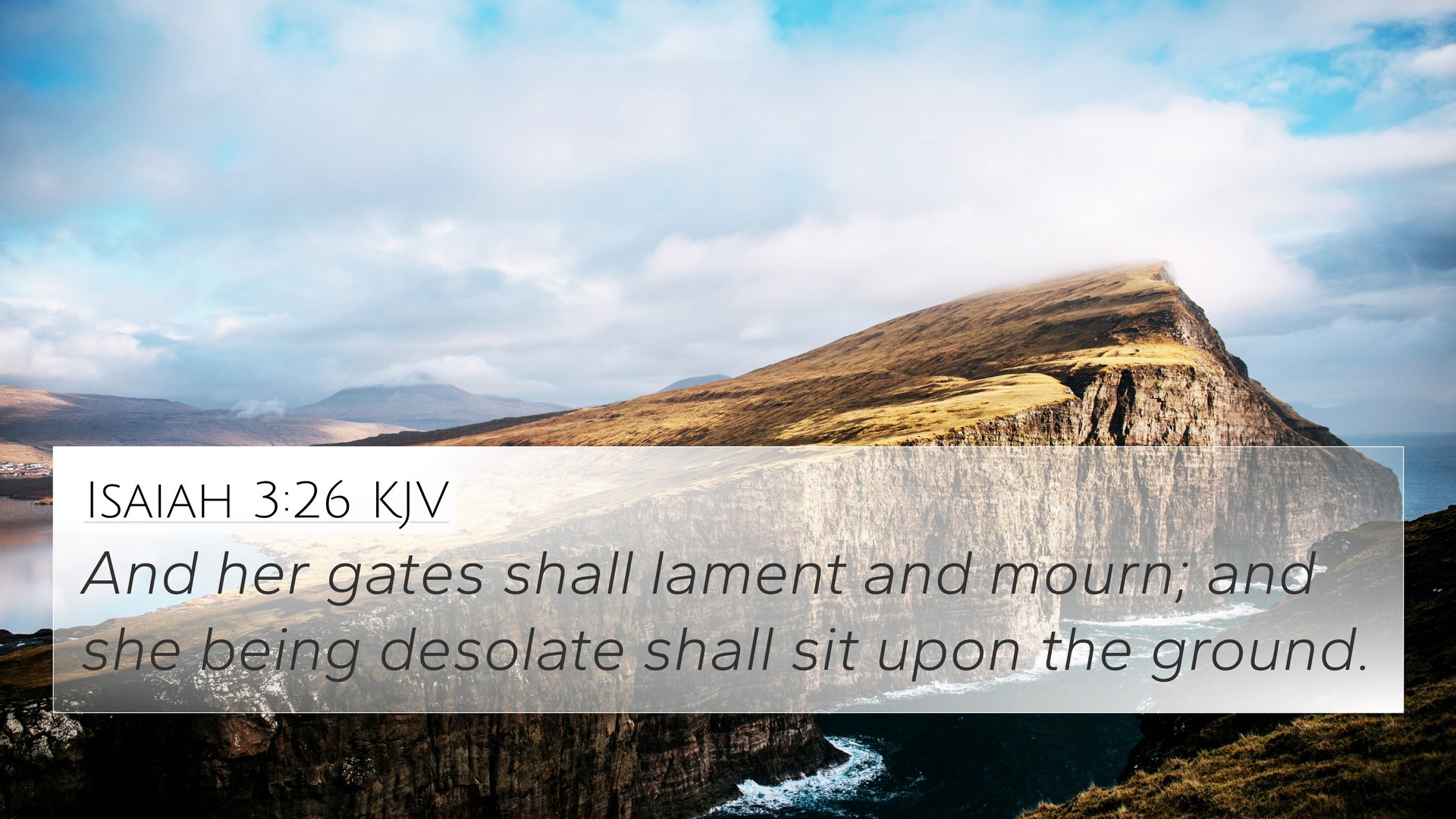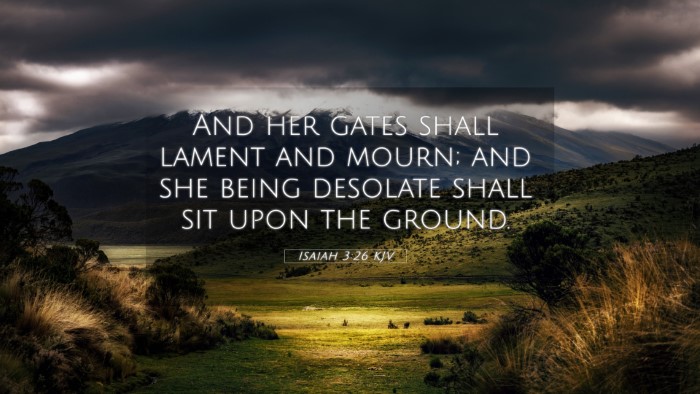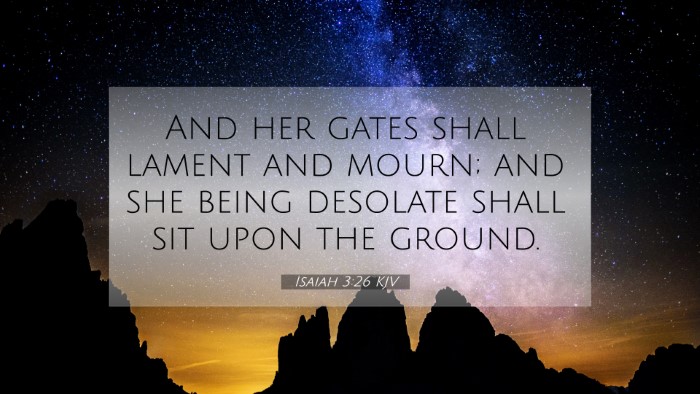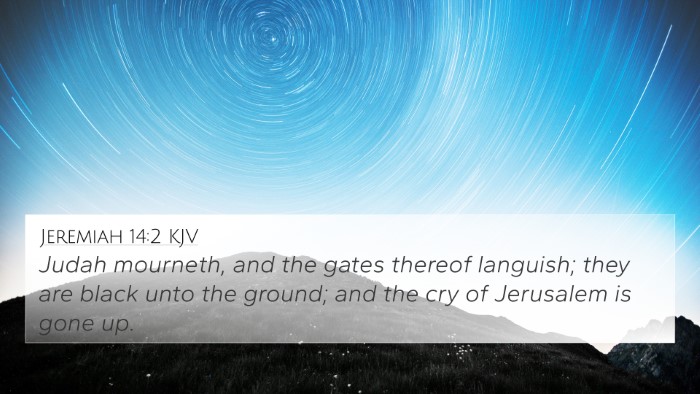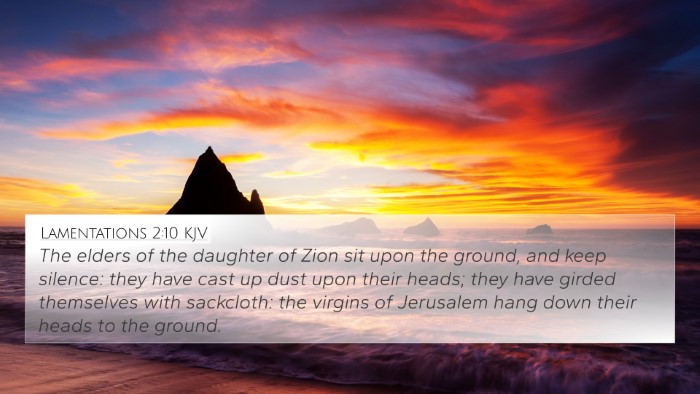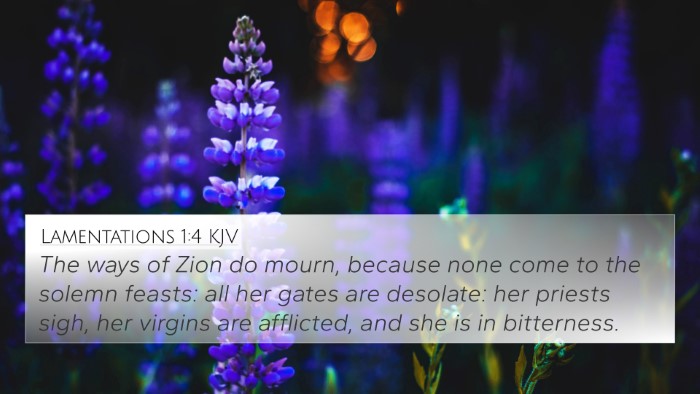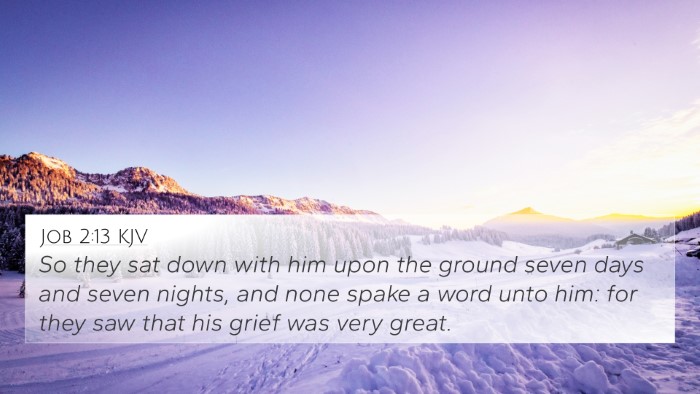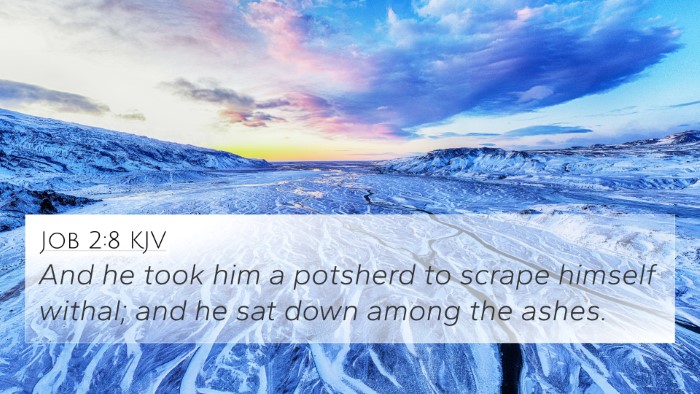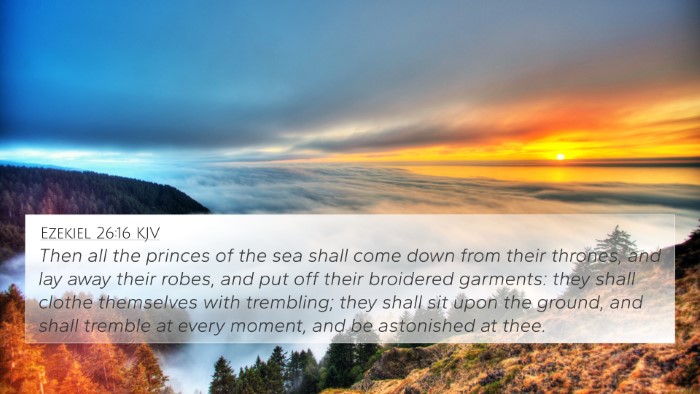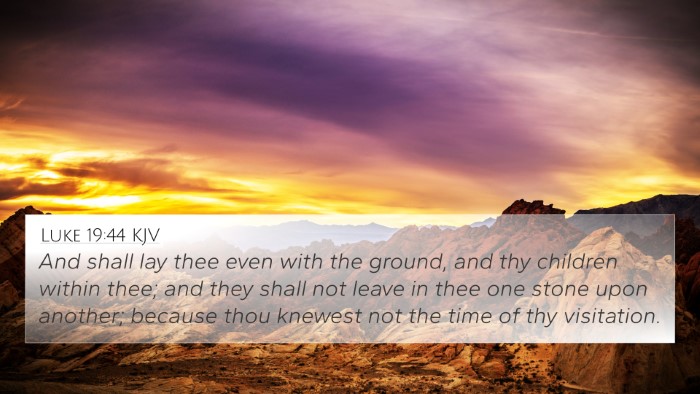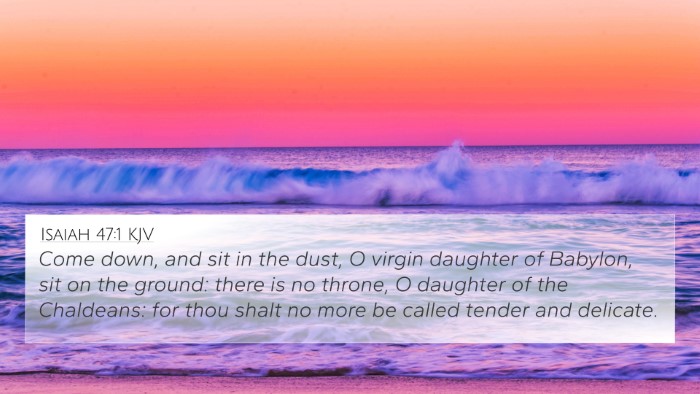Understanding Isaiah 3:26
Isaiah 3:26 states: "And her gates shall lament and mourn; and she being desolate shall sit upon the ground." This verse depicts a profound sense of loss and despair, reflecting upon the devastation of Jerusalem due to the people's rebellion against God. Through this verse, the prophet Isaiah uses powerful imagery to emphasize the consequences of disobedience.
Summary of Insights
The combined insights from public domain commentaries provide a layered understanding of this verse:
-
Matthew Henry's Commentary:
Henry points out that the mourning of the gates signifies the shutting down of the city as a place of joy and safety. The desolation represents not only physical destruction but also the spiritual emptiness resulting from turning away from God.
-
Albert Barnes' Commentary:
Barnes elaborates on the imagery of gates lamenting, interpreting it as a symbol of the loss of community and protection. The picture of sitting upon the ground illustrates a state of utter helplessness and disgrace for the once-proud city.
-
Adam Clarke's Commentary:
Clarke notes that this desolation foretells a time of judgment, where the former glory of Jerusalem is replaced with mourning. He emphasizes the importance of repentance to restore the city’s standing before God.
Thematic Connections
The themes of judgment, mourning, and desolation in Isaiah 3:26 resonate with several other Bible verses. These connections enrich the understanding of God’s message to His people:
- Lamentations 1:1-2: Describes the desolation of Jerusalem and its sorrow, paralleling the mourning depicted in Isaiah.
- Jeremiah 9:1: Expresses a similar sorrow for the people of Israel, showing the deep emotional impact of sin and rebellion against God.
- Micah 1:8-9: Details the consequences of Israel’s actions leading to their downfall, connecting with the theme of judgment in Isaiah.
- Luke 19:41-44: Jesus weeps over Jerusalem, highlighting the city's imminent destruction and aligning with the lament in Isaiah.
- Revelation 18:2: The fall of Babylon reflects the ultimate judgment on a city that turns against God, echoing the desolation in Isaiah.
- Isaiah 1:7: Discusses the desolation of Zion, reinforcing the idea that disobedience leads to destruction.
- Isaiah 64:10-11: Mourns over the desolate state of Zion, similar to the themes in Isaiah 3:26.
Cross-Referencing Biblical Texts
To fully grasp the meanings of Isaiah 3:26, one may consider employing tools for Bible cross-referencing. These tools facilitate an enriched study experience, enabling a deeper understanding of inter-Biblical dialogue and thematic connections:
- Using a Bible Concordance: A Bible concordance can help locate verses that echo similar themes, such as judgment and mourning.
- Explore a Bible Cross-Reference Guide: Such guides can link Isaiah 3:26 to other relevant scriptures, illuminating further connections.
- Cross-Reference Bible Study Techniques: Employing these methods allows one to examine the connections between Old and New Testament themes.
- Utilize a Comprehensive Bible Cross-Reference Material: These resources can assist in identifying links between prophetic writings and apostolic teachings.
Practical Application
Understanding Isaiah 3:26 and its implications encourages believers to consider the gravity of turning away from God. Reflecting on the sorrowful fates of cities and people throughout biblical history serves as a reminder of the importance of obedience, repentance, and returning to God’s ways.
Conclusion
Isaiah 3:26 is a poignant reminder of the spiritual and physical desolation that follows disobedience to God. By linking this verse with others that discuss judgment, mourning, and God's message, we can better appreciate the weight of these themes and their applicability today. Through diligent study and cross-referencing, believers can foster a deeper understanding of scripture and its timeless truths.
